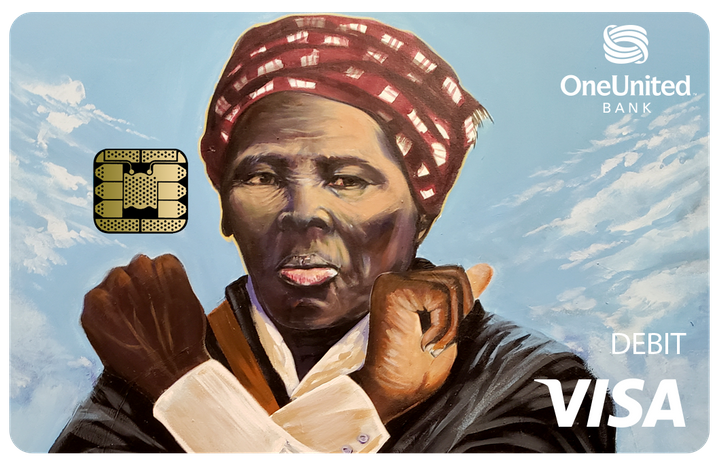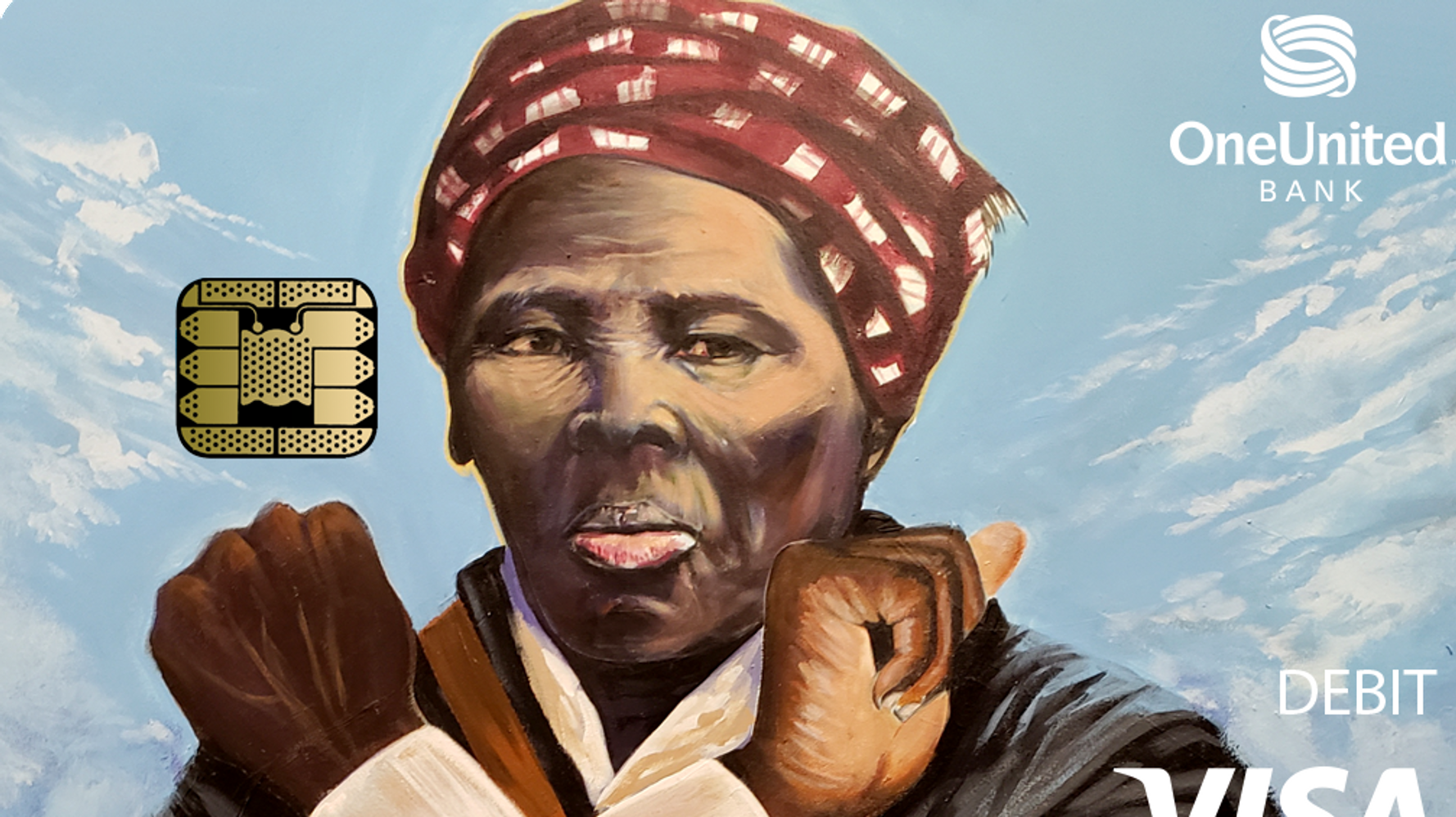[ad_1]
The nation’s largest Black-owned bank is honoring Harriet Tubman with a debit card, but many people on social media have their doubts. Some suggested it was more of a tribute to Wakanda, the fictional African country featured in the movie “Black Panther,” while others wondered how much of an honor a debit card is.
On Thursday, OneUnited Bank announced it’s offering a limited-edition Visa debit card featuring the 19th-century abolitionist this year.
Teri Williams, the bank’s president and chief operating officer, told HuffPost that the card has been in the works since 2016 when the U.S. Treasury, under President Barack Obama, announced that it would be putting Tubman on the $20 bill.
Then, “we made the decision to launch the card after [the Treasury announced last year] the Tubman $20 was being delayed,” Williams said, adding there was no connection with the Academy Award-nominated biopic “Harriet.”
In a press release announcing the card, Williams made clear what the bank’s goal was.
“We have the power to place Harriet Tubman on a global payment device in celebration of Black History Month,” Williams said. “This symbol of Black empowerment in 2020 will pave the way for the Harriet Tubman design on the $20 bill.”

But what struck many people on social media was that the card’s design appeared to show a 19th-century freedom fighter making the “Wakanda Forever” salute from the 21st-century Marvel film.
Turns out, the image of Tubman on the debit card ― which comes from “The Conquerer,” a painting by Miami artist Addonis Parker ― is supposed to depict her making the American Sign Language word for “love.”
“She was about love,” Parker told The Washington Post. “It took sacrifice and love for her to do everything she’s done.”
The paper notes that the ASL sign for love is “generally interpreted by crossing your arms and balling your fists directly in front of your chest,” but space considerations required Parker to move Tubman’s arms up a bit.
He also pointed out that “Black Panther” director Ryan Coogler has said the “Wakanda Forever” salute was also partially inspired by the ASL word for “love” or “hug.”
Williams said the card is supposed to represent Black economic empowerment, social justice and Black love. Still, many Twitter users weren’t convinced that a debit card was the right way to go.
Williams acknowledged the card has its critics but said she appreciated their passion. And despite the social media snark, she feels the card’s introduction has been a success.
“A lot of people love this card ― our website traffic has increased tenfold,” she told HuffPost.
Calling all HuffPost superfans!
Sign up for membership to become a founding member and help shape HuffPost’s next chapter
[ad_2]
Source link


 irl.
irl.